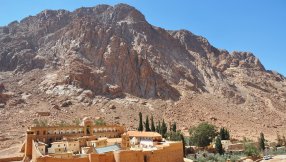The biblical story of Ruth has inspired poems and paintings for generations. Musicals, not so much.
But that's set to change, thanks to the vision of one young film-maker.
Jay Moussa-Mann is a Christian who grew up in Turkey and studied film and TV production at Teesside University. She's on the verge of completing a project that began 10 years ago and that's taken over her life.
Ruth: The Musical is billed as a 'feature film musical about a woman's journey of faithfulness'. Jay has written the script and the music – and sings some of it, too, as she plays the part of Ruth.
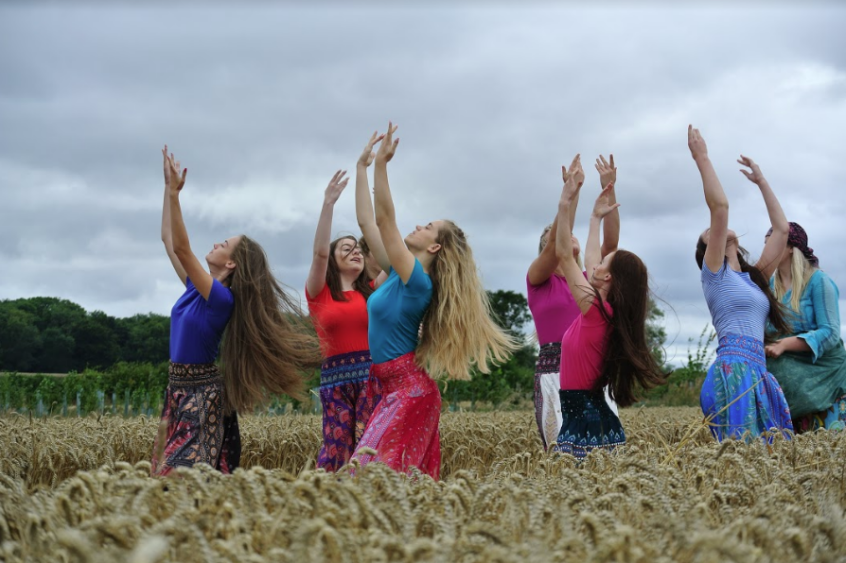
Jay tells Christian Today the idea came to her in 2008, when she'd moved back to Turkey to work with her parents. 'I was taking part in a long-distance course on screenwriting and it had inspired me enough to decide I wanted to try writing a musical,' she says.
It was her mother who suggested Ruth.
'I was completely struck by how it spoke to me,' says Jay. 'I related to Ruth but more importantly, for me, I was astounded by the provision of God throughout the story. That he provided protection and comfort for two women who society marginalised. Being from two cultures myself, I have always lived with that sense that I don't really belong anywhere, looking for someone to accept me and in Ruth, the way she is cared for and accepted by Boaz really moved me, especially as it is a reflection of the way God has done that for us.'
She adds: 'The part of the story that really got me and was the first song I wrote was when Ruth decides to stay with her mother-in-law, Naomi. After they have set out on a journey back to Naomi's homeland, Bethlehem, Naomi tries to send her two daughters-in-law back to their families but Ruth won't leave. There was a determination and rock-solid will I saw in Ruth when I read that which touched me.
'Unlike a lot of sermons and commentaries on Ruth, I never thought it was entirely out of loyalty to her mother-in-law that Ruth stayed. I believe she had already come to know the God of Israel, Naomi's God, and I think Naomi was her only connection to that truth and by going with her she was committing to live her life for God. I thought that was powerful and it made Ruth's character really interesting to me.'
Though she's been working on it since 2009, it's only in the last two years that it's really taken off – she describes them as 'a whirlwind of meetings, writing proposals and script development'. Filming – much of it in north Yorkshire – has been completed, and the final version should be ready by March 2019.
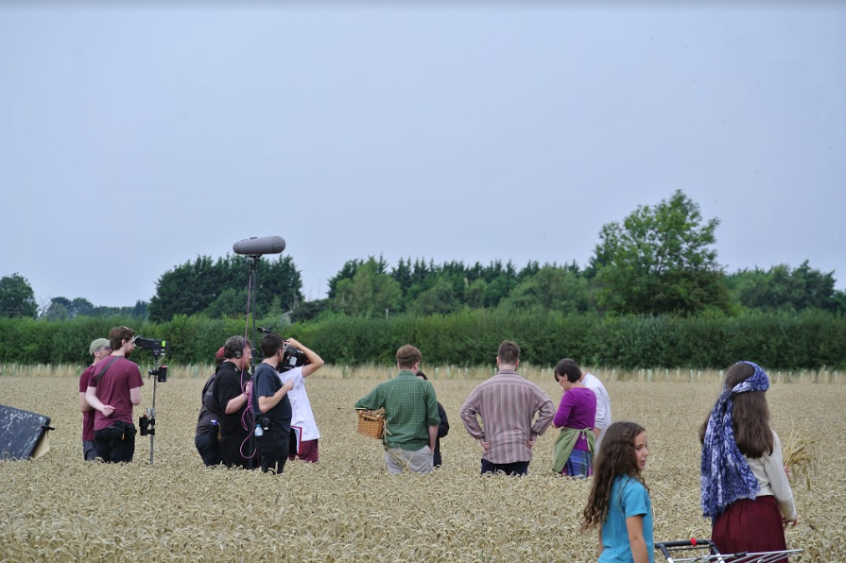
The film – shot, Jay says, on an 'incredibly low' budget raised from investors and personal funds – is co-produced and will be distributed by VisionVideo, whose work includes The Cross and The Switchblade and the original Shadowlands which inspired the later version with Anthony Hopkins. The actual filming, involving a cast of seven and more than 30 extras, took place in only 12 days.
The north of England backdrop wasn't originally in the plan.
'I originally wrote the film to be shot in Turkey and emulate the Turkish culture,' Jay says. 'All the songs were written with that in mind, mixing eastern and western sensibilities and styles.
'Turkish music has always hit me right at my heart and I think that's why it poured out of me the way it did. This story is for everyone and I do believe that there is something special about the fact that these songs will be musically understood by a Middle Eastern audience, as well as a Western one.'
And north Yorkshire isn't as far away from Turkey, visually, as you might think. 'Having lived in Turkey for over 15 years, a lot of the landscape worked for me,' Jay says. 'There are places here that look like Turkey, it doesn't all have to be dry arid land as most people expect from biblical stories.
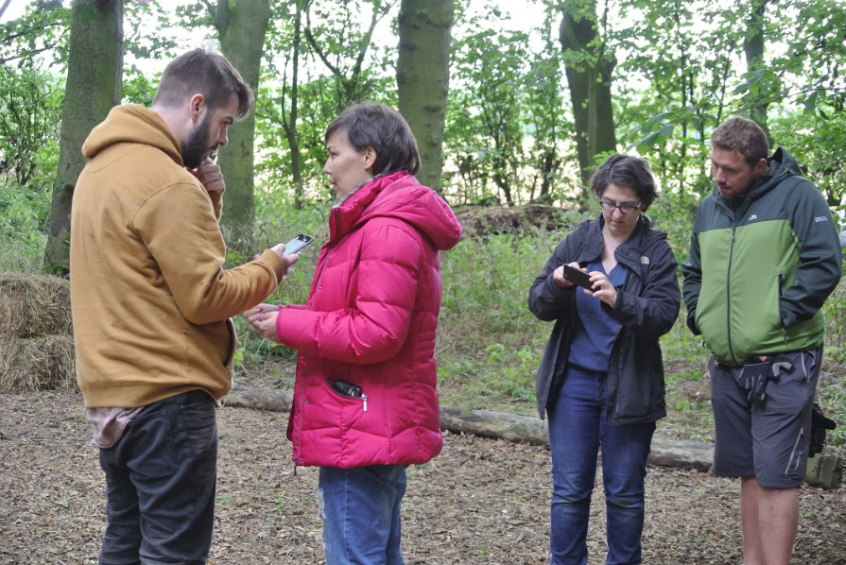
'I was set on keeping a Turkish look to the film, both in the costume and production design. This felt important to me because I wanted to make this story inclusive. I want someone in Syria or Turkey to watch this and recognise the clothes and the house decor.
'That said, I think the film has taken on its own style and what we have in fact is a unique world that the characters live in. We kept the names Bethlehem and Moab but did not try to make it like Israel or keep it in the biblical era.'
That Turkish/Yorkshire mix is important for other, personal reasons, too. Ruth's position as an imigrant outsider, who doesn't quite fit in, resonates with Jay's own experience. As she puts it, Ruth 'leaves an entire culture and life behind to move with her mother-in-law to a country where she effectively becomes a nobody. She is looked down upon and left on the outside.
'We love to argue over the issue of immigration and prejudice. What I find interesting is that the Bible puts it simply. There are countless verses in the Bible talking about including the foreigner, providing for the foreigner, making someone who is likely to be left out, feel part of something. Boaz is a good man because he keeps the law that during the harvest, the edges of the field should be left for the poor and the foreigners to benefit from. His decision to honour the law keeps Ruth and Naomi safe.'
She reflects on her personal experience of being on the outside.
'It's not just the big gestures that matter. I was once walking with two of my Turkish friends to their relative's house when I heard one of them say to other, "I'm nervous about taking her." She was referring to me. They thought I wasn't listening or that their jargon was too colloquial for me to understand. "Why?" asked the other one. She replied, using a Turkish idiom, "I'm afraid she'll break a pot," which means to make a blunder, or to speak out of turn.
'Those word cut me to the quick and they have never left me. My friends were afraid I would embarrass them by doing something against the culture. I made them nervous. I was a cultural liability and yet I had known no other home than this all my life.
'It's a small thing but I have lived countless moments like that as someone who is a foreigner in both countries and those moments hurt. They make you question your core identity and when I was making this film about Ruth I felt I could bring that element home and hopefully make it more real. It's the sort of thing that will be becoming more and more real to many people across the globe.'
Ruth's story also resonates powerfully in an era ever more conscious of the vulnerability of women to male aggression – and when the two winners of the Nobel Peace Prize have been awarded it for their work combating sexual violence.
Jay says: 'Ruth is a young, widowed and therefore single woman in a society where men are king. She is at the mercy of men's decisions and yet we see, between her and Naomi, a strength that overrides social class and the status quo.
'I have been a single woman in the Middle East. As an independent, opinionated woman I found it hard. Had I not had my father to protect me, I would often have been at the mercy of other men's decisions. It doesn't matter how strong a woman you are, in many cultures today around the world women are not in control and the protection of a good man matters like life and death.
'I see in Ruth's determination to work in a dangerous environment, where she could easily have been raped, in order to provide for her mother-in-law, an almighty strength of character.'
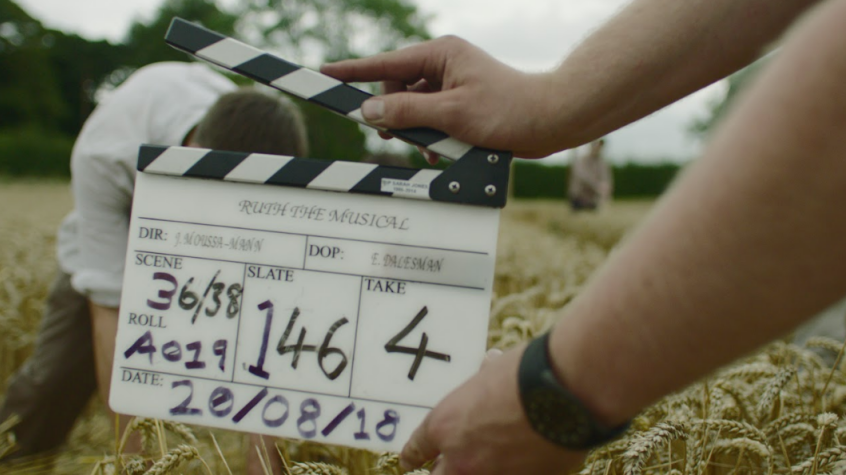
It's been a long road to getting the film completed, with many bumps along the way. There were times it looked as though it would never happen, with financial worries not the least of their problems. Even the weather played a part. 'We also had a lot of stress waiting to see if the wheat field would be there for the shoot, which was terrifying because a huge percentage of the story relies on the fact that Ruth is working in a field,' Jay recalls. 'Without that the story really falls apart. Angrove Country Park [in Stokesley] were incredible by giving us a field to film in but the heat wave meant that we didn't know if they would have to harvest the field right up until almost the day before we started shooting.
'There were many moments I wanted to run away but God provided an answer at every turn.'
Now, though she still needs to continue fund-raising for editing the film the end is in sight.
'For me, seeing an audience be moved by this story and it's characters will be a success,' she says. 'We would also love to see the film encourage people to read the Bible, especially those who never have. I've never understood those who say the Bible is boring or difficult to read as I find it teeming with inspiration and adventure.
'I would like to be able to dub the film into Turkish, Arabic and other languages. The songs would translate well into the Middle East because they were originally written in Turkish, which is great because how often can songs do that from English?'
In terms of the future, she says: 'I've never seen this film as my calling card as a director or the next step in my career. It is simply a story I love and wanted to tell because I think it paints a picture of a God who I know. One who gives me identity in a world where I have never felt accepted.'
For more about 'Ruth: The Musical' click here.












